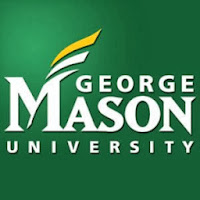 |
| George Mason |
In early 1776, before the Declaration of Independence, Mason drafted the Virginia Declaration of Rights and framed Virginia’s constitution. George Mason was rightfully proud of the Virginia Declaration of Rights, and pleased that it became a model for other states.
SECTION I. That all men are
by nature equally free and independent and have certain inherent rights, of
which, when they enter into a state of society, they cannot, by any compact,
deprive or divest their posterity; namely, the enjoyment of life and liberty,
with the means of acquiring and possessing property, and pursuing and obtaining
happiness and safety.
SEC. 2. That all power is vested in, and consequently derived from, the people; that magistrates are their trustees and servants and at all times amenable to them.
SEC. 2. That all power is vested in, and consequently derived from, the people; that magistrates are their trustees and servants and at all times amenable to them.
The document had sixteen
sections, but these short paragraphs encompassed the Founding Principles. The
concepts look familiar because Thomas Jefferson eloquently incorporated them in
the second paragraph of our Declaration of
Independence.
Therein lies the rub. George
Mason’s primary objection to the Constitution was the absence of a bill of
rights. He not only refused to sign the document at the convention, he hotly
fought against it during Virginia ratification, despite promises by James
Madison and others to add a bill of rights in the first congress.
Although he believed a bill of
rights was mandatory, he had additional objections to the Constitution. Among
his other concerns, he believed the convention was giving the executive branch
(president) too much power. On June 4, he made an angry speech to the federal
Convention.
“We are, Mr. Chairman, going very
far in this business. We are not indeed constituting a British government, but
a dangerous monarchy, an elective one… Do gentlemen mean to pave the way to
hereditary monarchy? Do they flatter themselves that the people will ever
consent to such an innovation? If they do I venture to tell them, they are
mistaken. The people will never consent!”
During the convention, Mason
consistently argued for a three-person executive. In his mind, a one-person
presidency was far too close to the monarchy they had just fought a bloody war
to escape.
As owner of Gunston Hall, Mason
was one of the richest planters in Virginia. He owned seventy-five thousand
acres and over ninety slaves. Despite his membership in the planter class,
Mason often expressed opposition to slavery. During ratification, however, he
argued that the Constitution did not adequately protect slavery. This may,
however, have been a political ploy to persuade slaveholding delegates to
oppose adoption.
When his neighbor, George
Washington was inaugurated, Mason remained pessimistic. In fact, he was so
frustrated with a federal government that he believed was too strong, he
retired from politics. This was the country’s loss. George Mason made great
intellectual contributions to our founding. He unswervingly supported natural
(inalienable) rights, both in Virginia and the nation. To a great extent, we
owe him our gratitude for the first ten amendments.
What
about the other two non-signers? Elbridge Gerry reversed his allegiance to
become an ardent Federalist, but later bolted the Federalist Party to join the
Jeffersonian Republicans. Edmond Randolph was a simpler sort. Washington
promised him the position of Attorney General in his administration, and he
became a keen supporter of the Constitution during the Virginia ratification.
No comments:
Post a Comment